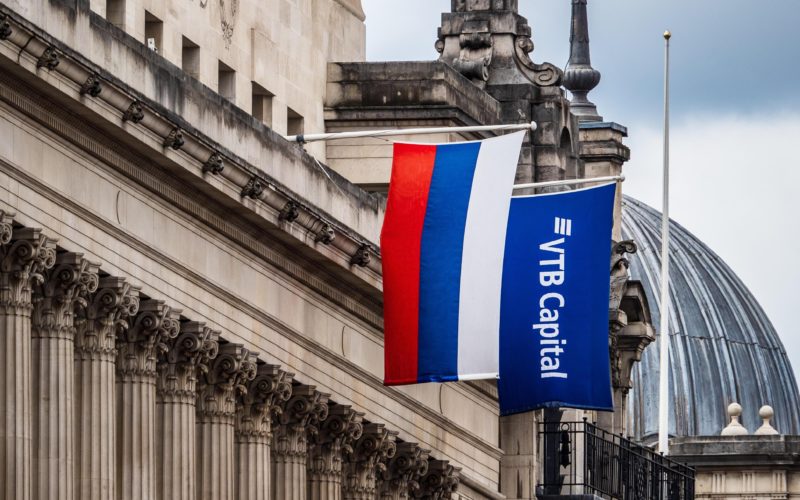As the first sanctions hit Russia and its banks following the ongoing invasion of Ukraine, the repercussions are already showing. Among the sanctioned companies in Russia, the National Bank of Russia declared VTB, the country’s second largest bank, as well as other institutions like Sovcombank, Novikombank, Otkritie and Promsvyazbank.
The central bank announced that payment services such as Apple Pay and Google Pay would be stopped for card users of U.S.-sanctioned banks. For now, all other types of payments, including contactless payments should work for users.
On the other hand, cards issued by sanctioned banks should not allow the purchase of goods and services sold in countries bearing the sanctions. This information from the central bank remains rather vague as to its implementation.
Apple reportedly removed the mobile applications of the sanctioned Promsvyazbank on Wednesday. At least three apps were removed from the App Store. Google has also reportedly removed the bank’s main app from its app store.
What solutions to the banking sanctions in Russia?
The Russian people seem to have turned first to cash, with a total of 111.3 billion rubles withdrawn from Russian banks on the first day of the invasion in Ukraine. This number is a record since the start of the Covid-19 pandemic in 2020.
Residents continue to withdraw large amounts of cash from their bank accounts, while many users are witnessing ATMs emptied of available cash.
Bitcoin and crypto currencies, a more efficient alternative?
Following statements by Nikolai Arefiev, deputy chairman of the Duma’s economic policy committee, regarding potential seizures of the Russian people’s bank accounts, the question of centralization arises. Although cash is difficult to seize, it is still centralized and its value is closely linked to the actions of the central bank.
Many Russians might then turn to crypto currencies like Bitcoin. And while no crypto currency exchange platform is legally recognized by Russia, it is possible to observe value movements on peer-to-peer crypto exchange sites like LocalBitcoins.
Finally, the volume of Bitcoin exchanges in Russian rubles on the LocalBitcoins platform has been declining since the year 2021, suggesting that individuals have not, for the time being, made the choice to decentralize. Their Ukrainian neighbors, meanwhile, are turning to crypto currencies en masse, preferring stablecoins to Bitcoin, until they exhaust the available supply.
The price of USD, Tether’s stablecoin, has actually climbed to $1.25 on crypto exchange platforms in Ukraine, forcing buyers to pay a premium to exchange their national currency for stablecoin.




